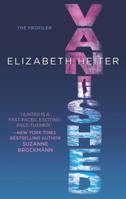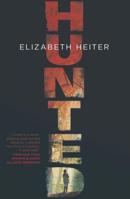Solskin på Tallerkenen: En Rejse gennem Middelhavets Smagsunivers (Danish Edition)
Select Format
Select Condition 
You Might Also Enjoy
Book Overview
"Solskin p Tallerkenen: En Rejse gennem Middelhavets Smagsunivers," forfattet af den dygtige kulinariske skribent Signe Johansen, tager dig med p en uforglemmelig kulinarisk rejse til Middelhavets fortryllende verden af smagsoplevelser.
Med rtusinders kulinarisk arv er Middelhavets k kken kendt for sin enkle, sundhedsgivende og smagfulde madlavning. I denne inspirerende bog deler Signe Johansen sine dybdeg ende indsigter i Middelhavets smagsunivers, fra de olivenolie-druende bakker i Gr kenland til de solmodne tomater i Italien.
Uanset om du er en passioneret kok eller blot en madelsker, vil "Solskin p Tallerkenen" udfordre dine smagsl g og inspirere dig til at omfavne Middelhavets sunde og velsmagende ingredienser i din egen madlavning.
Signe Johansen kombinerer velsmagende fort llinger om hendes egne kulinariske eventyr med praktiske r d om, hvordan du bringer den autentiske smag af Middelhavet ind i dit eget k kken. Bogen er fyldt med en skat af opskrifter, der hylder rhundreders tradition og lidenskab for god mad.
Lad "Solskin p Tallerkenen" guide dig p en kulinarisk rejse til Middelhavets hjerte, hvor du vil opdage en verden af smagsoplevelser og sunde madvaner. Med denne bog i h nden kan du skabe uforglemmelige m ltider og bringe Middelhavets solskin direkte p din tallerken.











![Paperback Solskin på Tallerkenen: En Rejse gennem Middelhavets Smagsunivers [Danish] Book](https://i.thriftbooks.com/api/imagehandler/m/B00F14F03792547941164A872A6464857A95D43A.jpeg)


























